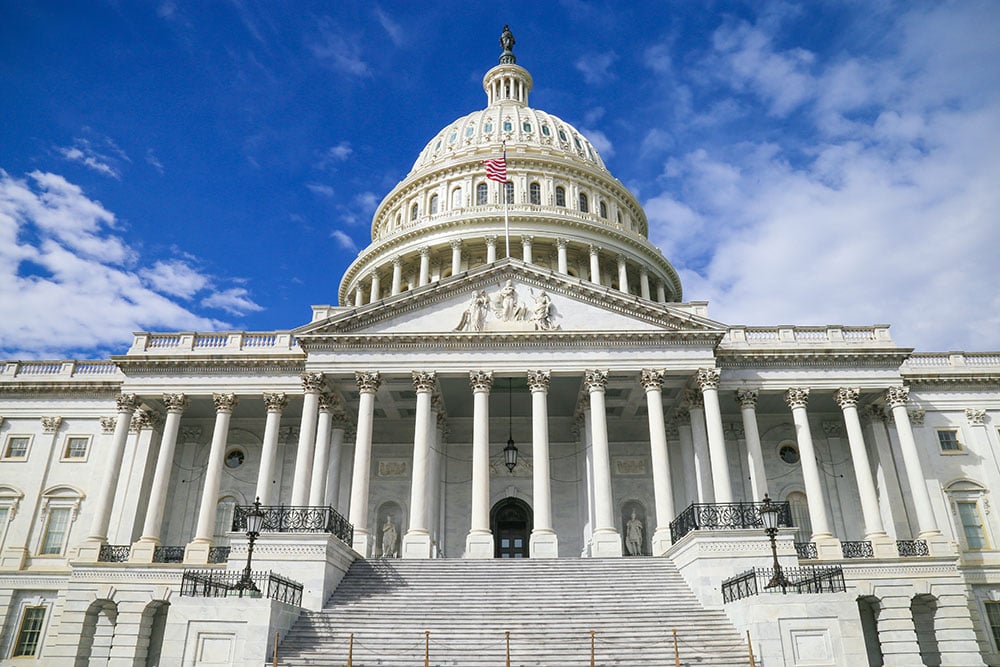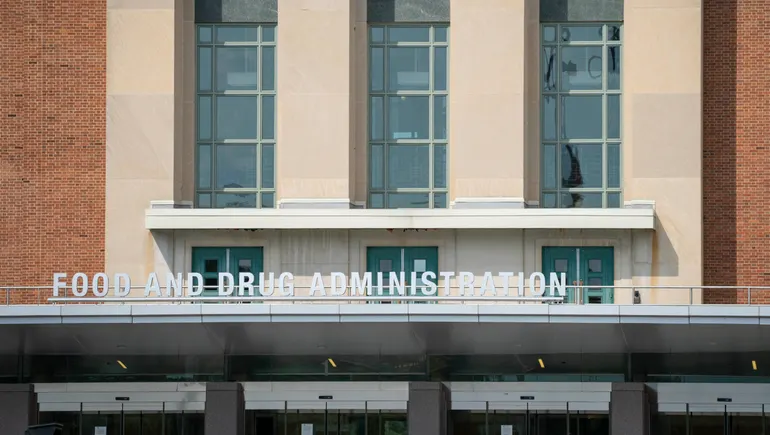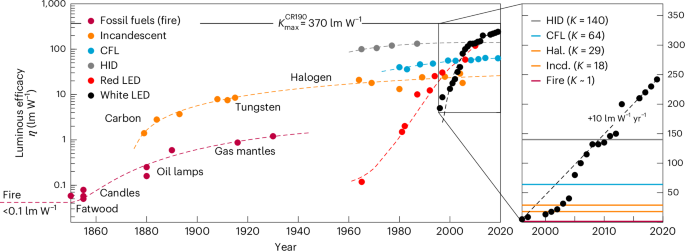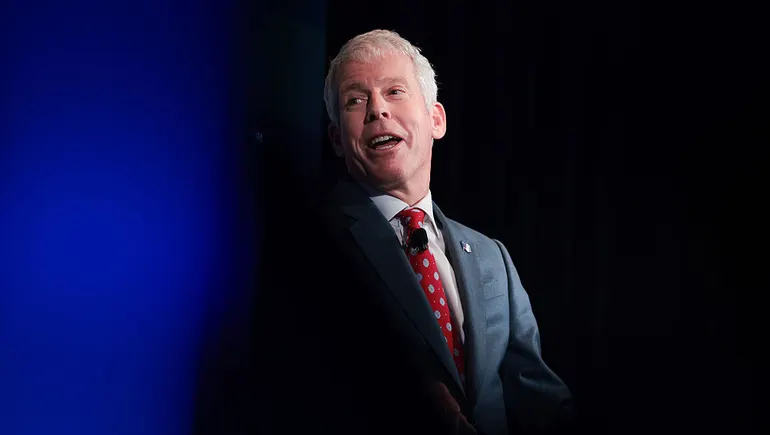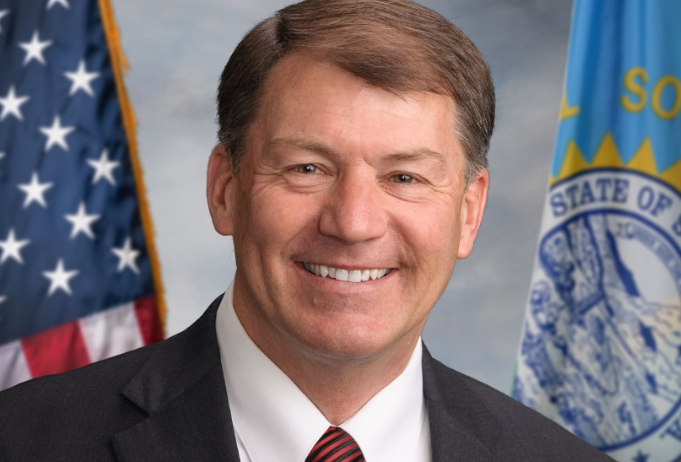HASC approves $150B defense increase as GOP shuts down amendments to curb Hegseth, DOGE
Effectively untouched after about four hours of debate, the bill will now go to the House Budget Committee.
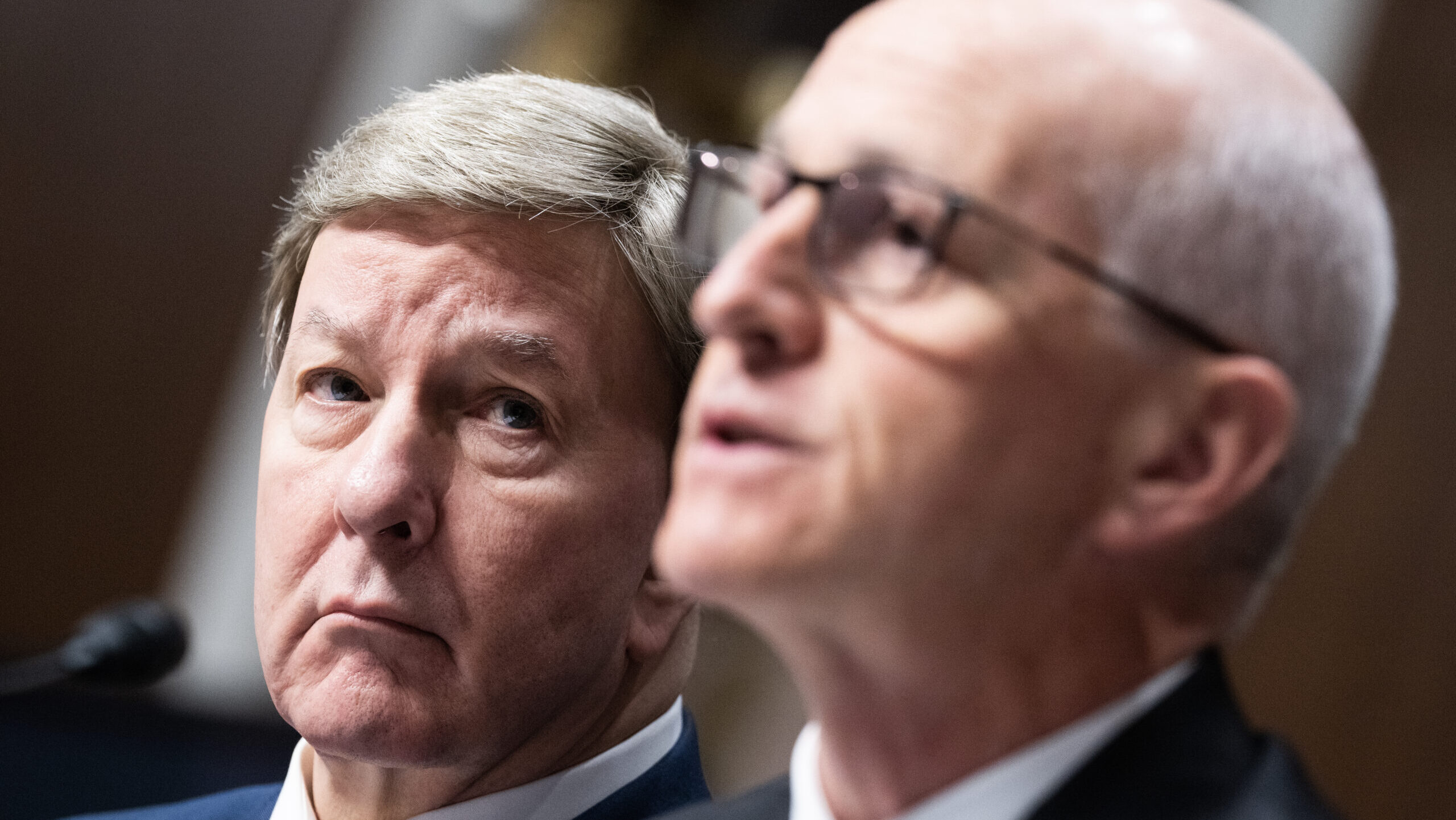

House Armed Services Chairman Mike Rogers, R-Ala., left, and ranking member Rep. Adam Smith, D-Wash., attend the House and Senate committee markup of the National Defense Authorization Act for Fiscal Year 2024 in Dirksen Building on Wednesday, November 29, 2023. (Tom Williams/CQ-Roll Call, Inc via Getty Images)
WASHINGTON — The House Armed Services Committee voted through a $150 billion boost to defense funding today, after Republicans shot down almost two dozen Democratic amendments that were largely a referendum of the Signalgate scandal and Defense Secretary Pete Hegseth’s leadership of the Pentagon.
The bill was approved in a 35-21 vote, with Democratic Reps. Donald Davis, Jared Golden, George Whitesides, Gabe Vasquez and Eugene Vindman joining Republicans to pass the bill.
Effectively untouched after about four hours of debate, the bill will now go to the House Budget Committee, where it will be combined with other pending legislation into a megabill aimed at codifying President Donald Trump’s wish list of spending cuts and funding increases to key focus areas like defense, energy and border security. Republicans plan to use a process known as reconciliation to approve that bill without threat of a Democrat filibuster.
HASC Chairman Mike Rogers called the vote on the $150 billion defense bill — which adds tens of billions to priorities such as shipbuilding, munitions and the Trump administration’s Golden Dome missile shield — a “historic day” marking the first opportunity the committee has had to use the reconciliation process to add defense funding to the budget.
But Rep. Adam Smith, HASC’s top Democrat, said he couldn’t support the $150 billion increase for defense because he didn’t support the overall reconciliation bill, which he called a “disaster for this country” that would cut funding for Medicare, the Centers for Disease Control and other programs that benefit the American taxpayer.
“The second big problem here is we’re giving $150 billion to this Pentagon, to Secretary Hegseth and President Trump. They have not even begun to prove that there is a chance in hell that they will spend this money intelligently, efficiently and effectively. Secretary Hegseth has proven himself to be completely incapable of doing the job of Secretary of Defense,” he said, pointing to Signalgate and the workforce churn at the Defense Department, which has seen several aides of Hegseth fired due to allegations of leaking information to the media.
“The Pentagon is being very poorly run. I see no evidence that they’re going to try to get any better. And what are they focused on? They’re focused on a culture war,” Smith added.
Republicans defeated an amendment from Smith, which would have fenced off 75 percent of the funding in the reconciliation bill until the defense secretary certifies that the Pentagon has a “viable mechanism to enforce a prohibition on the communication, transmission, or delivery of classified information” by department officials.
They also rejected an amendment that would have blocked all funding in the bill from being spent until Hegseth vacated the position of defense secretary, with the amendment’s sponsor — Rep. Chrissy Houlahan, D-Pa. — calling him “incompetent,” “reckless” and “paranoid.”
“Secretary Hegseth must go, and until he is no longer part of the government, no longer part of the DoD, I simply cannot vote to authorize this money in good faith and in good conscience,” she said.
Republicans batted down twin amendments from Rep. Pat Ryan, D-NY, which would have reduced Hegseth’s salary to $1 and prevented the Pentagon from obligating funds to defense contractors where a member of the company’s senior leadership team is working as a “special government employee.” The latter amendment was explicitly meant to mitigate conflict of interest concerns about SpaceX and Tesla founder Elon Musk, who Ryan said has been “put in charge, essentially, of the budgets of the very departments that pay him … while also getting access to information … that materially benefits himself and his companies.”
Another two amendments targeting Musk’s Department of Government Efficiency (DOGE) were also defeated by GOP lawmakers. One would have blocked $50 billion in funding until Hegseth certified that DOGE activities weren’t affecting military readiness, while another blocked $50 billion in spending until the Defense Department provided a report on DOGE activities within the Pentagon.
Other amendments — all voted down — would have blocked funding for a Pentagon makeup studio and a military parade. Other defeated amendments sought to limit the department’s ability to fire general and flag officers, as well as members of the Pentagon’s inspector general office.
Despite broad bipartisan concerns about reports that the Trump administration could consolidate the US military’s combatant commands, GOP lawmakers also voted against an amendment that would prevent funding in the reconciliation bill being used to consolidate US Northern Command and US Southern Command, as well as a second measure to prevent the consolidation of US European Command and US Africa Command.
Ryan, who sponsored the former amendment, argued that NORTHCOM and SOUTHCOM’s missions were “too different” for the commands to be combined, and expressed concerns that consolidation could negatively impact SOUTHCOM’s counterdrug and counternarcotics missions.
Rep. Mikie Sherrill, D-N.J., who sponsored the latter amendment, said maintaining the independence of EUCOM was “critical” to ensuring cooperation with NATO as well as a continued focus on threats posed by Russia.
In both cases Rogers countered that, while he shared Ryan’s and Sherrill’s concerns, the matter could not adequately be addressed during reconciliation, as other funding outside the bill could be used to consolidate combatant commands. Instead, he said, it should be debated as part of the fiscal 2026 defense policy bill.
Three amendments addressed specific weapons programs, and all were defeated. One measure sought to limit funding in the reconciliation bill for the Sentinel intercontinental ballistic missile system until the Pentagon granted Milestone B on the program.
Another would have zeroed out $2.4 billion for the nuclear Sea-Launched Cruise Missile, diverting that funding for military childcare. The third would have reduced funding for space-based and boost phase intercept capabilities meant for the Golden Dome missile shield by $2.6 billion, pushing those funds to various personnel-related spending such as military housing and bonus pay.
In a separate loss for Democrats regarding Signalgate, House Republicans essentially blocked a congressional mechanism that Smith hoped to use to force the Trump administration to turn over all communications related to the Signal app text chat used by Hegseth and other top administration officials to share information about military operations.
An environmental resolution approved by the House in a 216-208 vote included language that “turns off” privileged consideration of resolutions of inquiry until Sept. 30. Smith had filed a resolution of inquiry related to the Signalgate scandal on March 27.




































































